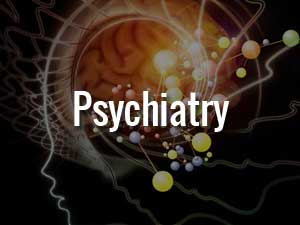- Home
- Editorial
- News
- Practice Guidelines
- Anesthesiology Guidelines
- Cancer Guidelines
- Cardiac Sciences Guidelines
- Critical Care Guidelines
- Dentistry Guidelines
- Dermatology Guidelines
- Diabetes and Endo Guidelines
- Diagnostics Guidelines
- ENT Guidelines
- Featured Practice Guidelines
- Gastroenterology Guidelines
- Geriatrics Guidelines
- Medicine Guidelines
- Nephrology Guidelines
- Neurosciences Guidelines
- Obs and Gynae Guidelines
- Ophthalmology Guidelines
- Orthopaedics Guidelines
- Paediatrics Guidelines
- Psychiatry Guidelines
- Pulmonology Guidelines
- Radiology Guidelines
- Surgery Guidelines
- Urology Guidelines
Methylphenidate may cause psychotic symptoms in ADHD patients

Dr Erica Ramstad and others reviewed the existing evidence between various psychotic symptoms such as hallucinations, problems with concentration or anxiety with methylphenidate, a drug commonly prescribed as a treatment for attention deficit hyperactivity disorder (ADHD) and narcolepsy. They have found that Methylphenidate may cause psychotic symptoms in ADHD patients. Their findings have appeared in Scandinavian Journal of Child and Adolescent Psychiatry and Psychology.
Ramstad and others examined whether methylphenidate increases the risk of psychotic symptoms in children and adolescents affected by the illness. Although the amount and quality of existing data did not allow them to draw any strong conclusions, their research suggests that possible adverse symptoms may affect around 1.1% to 2.5% of ADHD patients treated with methylphenidate.
Also read: Methylphenidate and amphetamines best for treatment of ADHD
ADHD is estimated to affect 5% of school-age children and 2.5% of adults worldwide. The disorder is characterized by age-inappropriate levels of inattention, hyperactivity or impulsivity, or all of these. The annual costs associated with ADHD are substantial in many countries. In the recent studies, Methylphenidate for children and amphetamines for adults are the most effective and safe drugs available for the short-term treatment of attention-deficit hyperactivity disorder
Methylphenidate is a stimulant that increases the activity of the central nervous system, helps to combat fatigue, improves attention and maintains alertness. Its medial use medical use began in 1960 and continues to grow since, reaching the global consumption of 2.4 billion doses in 2013. Clinical studies confirmed the safety and effectiveness of the drug and proved that its long-term usage reduces abnormalities in brain structure and function usually associated with ADHD syndrome.

Disclaimer: This site is primarily intended for healthcare professionals. Any content/information on this website does not replace the advice of medical and/or health professionals and should not be construed as medical/diagnostic advice/endorsement or prescription. Use of this site is subject to our terms of use, privacy policy, advertisement policy. © 2020 Minerva Medical Treatment Pvt Ltd